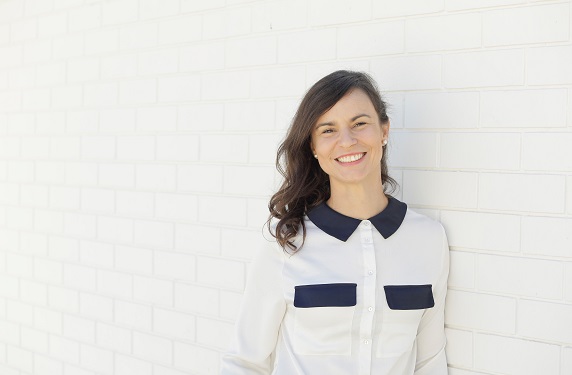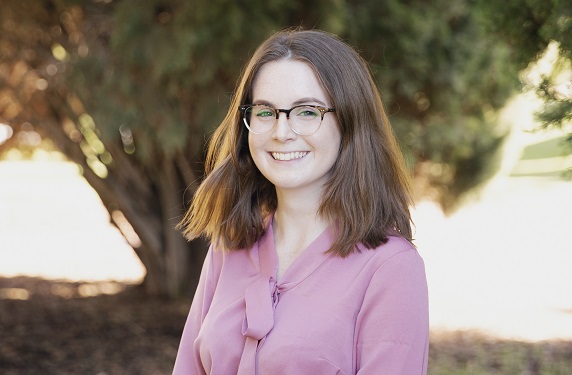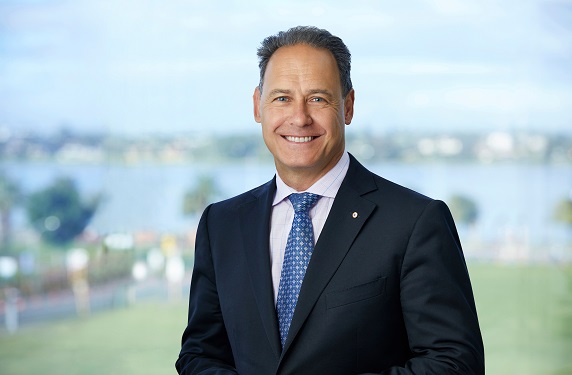From crisis comes creation
Dr Julia Reisser, Research Fellow, UWA Oceans Institute
Unlike financial crises, which can often be remedied emotionally by restoring people’s confidence in the markets, physical crises like COVID-19 can only be truly mitigated by addressing their root physical causes. Can we then, as individuals, governments, companies and civil societies, realise this and use the current pandemic as an opportunity to reimagine the way we operate?
Some people tell me this crisis will only move us backwards: the very low oil prices will delay our transition to clean energy, nationalism will become exacerbated, and the overall decrease in wealth will make investors even more short-term risk-averse, pushing the much-needed low-carbon revolution further away from us.
But I am with those who see the glass half-full, and realise that this crisis may act as a catalyst for change and positive disruption.
We may finally realise the world in which we now live is overly susceptible to widespread physical crises, making us rebuild our businesses with more transparency, modularity and decreased Scope 3 carbon emissions.
Perhaps our investors will take advantage of the rock-bottom interest rates to invest in climate-proof infrastructures and low-carbon operations that not only create new jobs, but also incubate a cooperative global community that is prepared for upcoming climate-driven events.
I believe this pandemic is the start of a widespread understanding of how connected we are as a global community, leading us to appreciate the importance of scientific expertise, prioritise environmental resiliency in our recovery plans and act upon the largest threat humanity faces: the climate crisis.
What you and I do with our time and resources in the next couple of years will determine our future. Let’s use this crisis to breed fresh thinking and implementation of a system-wide decarbonisation of economies that are much more resilient to future environmental disruptions.
My personal contribution to creating circular carbon economies is developing new ways to decouple polymer production from fossil fuels. This is important because if we keep business as usual, by 2030 the greenhouse gas emissions from plastic production will be the equivalent to emissions from 300 new 500-megawatt coal plants, and by 2050 emissions from plastics will reach 15 per cent of our global carbon budget.
“Let’s use this forced disruption to do what we should have done already; work hard towards building a system that puts the wellbeing of our kids and grandkids at the forefront of everything we do.”
Dr Julia Reisser
I strongly believe we are inhabiting a unique time in history when we are provided with a blank page for a new beginning.
Restarting our economy requires courage. Let’s use this forced disruption to do what we should have done already; work hard towards building a system that puts the wellbeing of our kids and grandkids at the forefront of everything we do.
A new time for cohesiveness and cooperation
Bre Shanahan, 2020 UWA Guild President
If you had asked me this time last year how I thought my term as President of the UWA Student Guild would go, it couldn’t be further from how 2020 panned out. A pandemic was certainly not what I, nor anyone else for that matter, had in mind this year.
UWA has undertaken an extraordinary transformation of its operations in a matter of months. Suddenly, an organisation that has functioned in a specific way for such a long period of time has had to adapt to a new normal. Ordinarily, there would have been some resistance for the types of solutions that were being proposed, but we have witnessed hundreds of units transform from being taught exclusively on campus to being delivered online in a matter of weeks.
There are a number of lessons we have learned as a result of this experience. At UWA, what stands out for me, is pursuing ideas and projects without fear of failure, because we choose to aim for good rather than perfect. The communication and flexibility across the institution in this time has led to a new cohesiveness and cooperation that has undoubtedly made all of our jobs easier and, most importantly, benefited the student experience.
I have also heard a lot this year from members of the UWA community about the importance of the human experience. Prior to COVID-19, there was a lot of discussion among students about disruptive technology and how much of our future work could be automated. After experiencing lockdown, I think it’s safe to say that a fully automated future isn’t quite within our sights. While we might continue to strive for efficiency, we have all learned how important it is to us just to have a neighbour to say hi to or some small talk over a water cooler to fill up our days.
“I am sure our COVID experience won’t be one we will quickly forget, but without reflection, it will be easy to forget the humanity we learned.”
Bre Shanahan
I could continue to go on about lessons we have learned, but what is more important is ensuring these lessons don’t go to waste. During quarantine, we seemed to have a heightened desire to check in with our friends and neighbours, but as life returns to normal, we seem to be leaving that behind. Why is that? I don’t think it’s because we don’t need those small acts of kindness anymore.
I am sure our COVID experience won’t be one we will quickly forget, but without reflection, it will be easy to forget the humanity we learned.
Australia is in a good place
Dr Mark Barnaba AM CitWA, BCom '86, DCom '12, MBA, Harvard Business School; Non-Executive Board Member, Reserve Bank of Australia and Deputy Chair, Fortescue Metals Group
It has been an extremely difficult time for many in Australia; but compared with the rest of the world, the nation – and WA in particular – has done well by virtually all measures, including economic and health.
Luckily, we remain in a relatively strong position compared to other countries to deal with the outcomes from this health-induced economic shock. The balance sheets of our Federal Government, central banks, the corporate sector and even households remain in a very strong position vis-a-vis other similar countries. We’re very fortunate in the sense that we’re well positioned going forward.
Accelerated changes to the way we work
Working from home versus the office, virtual meetings versus in-person meetings, the propensity for travel, how we think about collaboration, teams and organisations – all of these have been accelerated in their evolution due to COVID-19. It’s not as if outcomes have occurred which never would have, but they have been accelerated and compressed. Technology has evolved and habits have formed, and that means that there will be change. In time, a new normal will emerge which won’t be what we do today, but neither will it be that of pre-COVID-19. That new normal will give rise to new lifestyles, new companies and, in many cases, will really test those who are less adaptive to change.
Profound societal change creates both winners and losers
Societal change tests very basic human qualities which become essential – resilience, adaptability, persistence and determination. Sadly, good times rarely test or help build these qualities. The organisations, people and families who exit this pandemic well will be those who have found a way to exhibit these essential qualities and a way to dig deep and see the silver lining of a very dark cloud. We can all do it, but if you’ve had sustained periods of good times and success, you haven’t had to draw on those types of qualities.
It’s also in situations like this when friendships, community connectedness, and wider family ties are more important than ever. Take a little more time to look after those you care about. I’ve been reminded that we’ve got much for which we should be grateful and that it is indeed true that “a burden shared is a burden halved”.
The world has a remarkable ability to rebound
“Hope, optimism and inner belief are really powerful remedies in times of crisis. The world has shown repeatedly that if you share learnings, work constructively together and throw focus and resources behind recovery, then the globe can rebound quickly.”
Dr Mark Barnaba
“Hope, optimism and inner belief are really powerful remedies in times of crisis. The world has shown repeatedly that if you share learnings, work constructively together and throw focus and resources behind recovery, then the globe can rebound quickly.”
Following the 2008 financial crisis, there was just one year where global GDP was negative, in 2009, and the year after it was positive. The OECD just released a report forecasting global GDP would be down by around -4.5% for 2020. That is a one in 100-year event. But it’s also predicting that next year the world will grow strongly. The world does rebound quickly; we are resilient.



